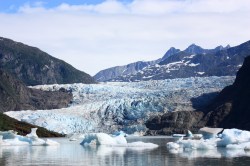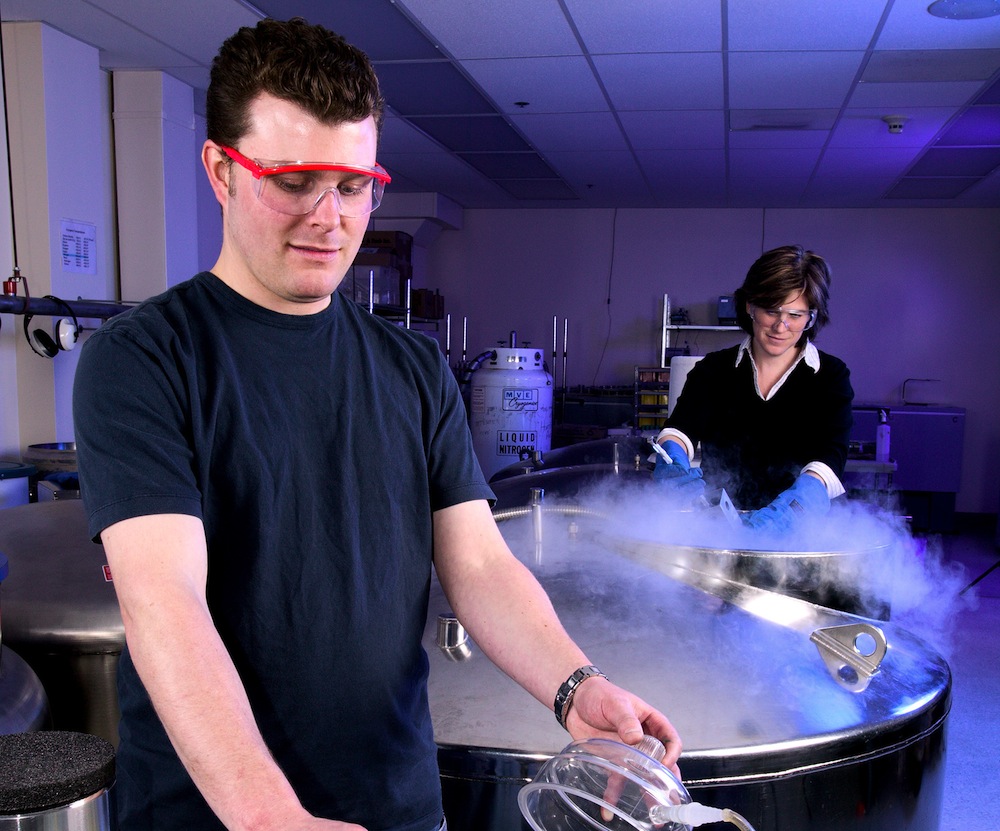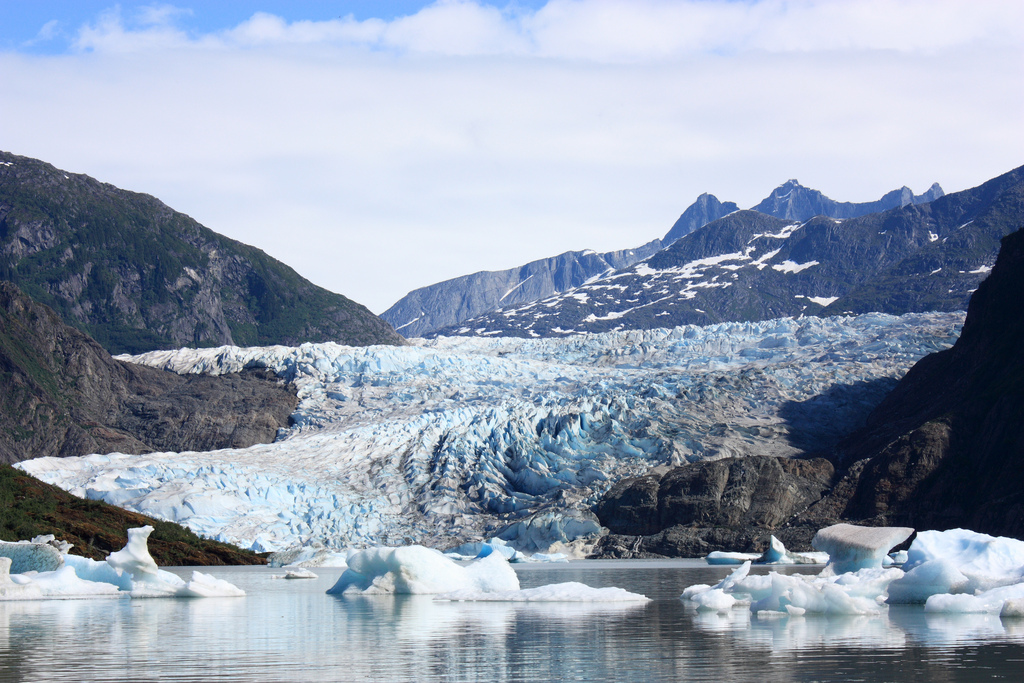
Random MichelleThe Mendenhall Glacier’s sudden surges of icy water threaten people and property in nearby Juneau.
Some say the world will end in fire, some say in ice. Alaska, by the looks of it, is on track for a double apocalypse.
The home of Sarah “global warming my gluteus maximus” Palin faces a daunting confluence of climate-related challenges, from rising seas to gushing glaciers to massive wildfires. Even Mayor Stubbs (who we’d expect to be cool about this kind of thing) won’t answer questions about the state’s fate.
Raging blazes in Arizona and Colorado have dominated wildfire news in recent years, but the biggest fires of the past decade burned in Alaska, which is warming twice as fast as the lower 48 states. There, flames have swallowed more than a half-million acres at a time (that’s 781 square miles) of boreal forest, the landscape of spruce and fir trees dominant below the Arctic Circle. And a new study says that this fiery phase is here to stay. From the L.A. Times:
A warming climate could promote so much wildfire in the boreal zone that the forests may convert to deciduous woodlands of aspen and birch, researchers said.
“In the last few decades we have seen this extreme combination of high severity and high frequency” wildfire in the study area of interior Alaska’s Yukon Flats, said University of Illinois plant biology Prof. Feng Sheng Hu. …
Accelerated wildfire could also unlock vast amounts of forest carbon, contributing to greenhouse gases. “The more important implication there is [that] you’re probably going to release a substantial fraction of the carbon that has been stored in the soil,” Hu said.
In contrast, Alaska’s Mendenhall Glacier, outside Juneau, threatens to wreak chilly destruction, reports The New York Times:
Starting in July 2011, and each year since, sudden torrents of water shooting out from beneath the glacier have become a new facet of Juneau’s brief, shimmering high summer season. In that first, and so far biggest, measured flood burst, an estimated 10 billion gallons gushed out in three days, threatening homes and property along the Mendenhall River that winds through part of the city. There have been at least two smaller bursts this year. …
Water from snowmelt, rain and thawing ice are combining in new ways, researchers said — first pooling in an ice-covered depression near the glacier called Suicide Basin, then finding a way to flow downhill.
What prompts a surge … is pressure. As water builds up in the basin and seeks an outlet, it can actually lift portions of the glacier ever so slightly, and in that lift, the water finds a release. Under the vast pressure of the ice bearing down upon it, the water explodes out into the depths of Mendenhall Lake and from there into the river.
The phenomenon is not unique to Alaska. Scientists call it jokulhlaup, an Icelandic word meaning “glacier leap.” Though the name suggests an eccentric backcountry sporting event or maybe an elfin dance move, there’s nothing jolly about it. Mendenhall, unlike most glaciers, is far from isolated: 14 miles from downtown Juneau, it’s one of the most visited glaciers in the world, attracting 400,000 tourists a year. That means that its tendency to leap poses huge risks to people and property, and local officials are scrambling to keep a close eye on it. The city of Juneau kicked in part of the cost to install a pressure transducer, which gauges water buildup and transmits real-time results back to monitors via satellite. Meteorologists say the warmer, wetter weather the Juneau area could see in coming decades could increase runoff and spur more frequent surges.
If only there were a way to make these glaciers leap on over to the burning boreal forest, where they could actually do some good. I’d suggest some kind of pipeline, but I think they’re all in use.



